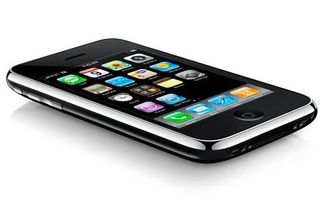Consumer tech invading business
Is it possible to cross the business/consumer tech chasm successfully?

In the mind of many marketers, it's historically been a case of never the twain shall meet when it comes to technology designed for businesses and consumers. And, to a certain extent, that's still very much the case. However, on closer inspection, there are many technologies successful technologies that started life as pure-play consumer products that have made their way into the hearts and minds of business users.
Perhaps, somewhat obviously, the best example here is the iPhone. Like so many other devices before it, it made its way into the enterprise through the back door' with employees falling in love with the shiny handset and demanding to know why their IT departments were not equally as keen to support it across the corporate network.
That story has changed slightly now. Thanks to the iPhone 3G and software updates to the first generation device, which mean business email and the like can work on the such handsets, they can be legitimate habitants of the company rather than illegal, seen-but-not-spoken-of immigrants.
Other mobile makers have cottoned onto the huge following the iPhone has amassed and, keen to get a piece of the action, have started releasing so-called iPhone killers in droves. While success has been varied, one thing remains constant: business users want a mix of style and substance on a device that can use for their day jobs as well as their lives outside of the office confines.
RIM's handouts, Google's enterprise
Research in Motion (RIM) is one of the many companies out there trying to practice what it preaches and give employees tools that encompass consumer and corporate requirements.
"All RIM employees are given a BlackBerry smartphone. This helps keep the organisation productive during work time, but also enables employees to make the most of their free time," a spokesperson told IT PRO.
Get the ITPro. daily newsletter
Receive our latest news, industry updates, featured resources and more. Sign up today to receive our FREE report on AI cyber crime & security - newly updated for 2024.
"With over 855 members of the BlackBerry Alliance Partners there are thousands of applications that have been created for business as well as personal use for example there are fitness applications, weather updates, currency converters and GPS/mapping tools."
Search giant Google is also somewhat of a golden child when it comes to bringing consumer goodness into the hands of corporate citizens.
"Google Enterprise was founded on exactly this premise - to take technology that has been successful in the consumer world and adapt it for use in a business environment," said Robert Whiteside, head of Google Enterprise in the UK and Ireland.
"The Google Search Appliance was the first example of that - it was clear that the search experience in the workplace didn't match up to search on the Internet so we sought to take our experiences in the consumer world and adapt it for business. Google Apps is the most recent example which is now delivering significant benefits to companies and their employees."
Whiteside also has advice for IT and business decision makers out there trying to navigate the maze of consumer tech and work out how to apply it effectively in-house.
Maggie has been a journalist since 1999, starting her career as an editorial assistant on then-weekly magazine Computing, before working her way up to senior reporter level. In 2006, just weeks before ITPro was launched, Maggie joined Dennis Publishing as a reporter. Having worked her way up to editor of ITPro, she was appointed group editor of CloudPro and ITPro in April 2012. She became the editorial director and took responsibility for ChannelPro, in 2016.
Her areas of particular interest, aside from cloud, include management and C-level issues, the business value of technology, green and environmental issues and careers to name but a few.





